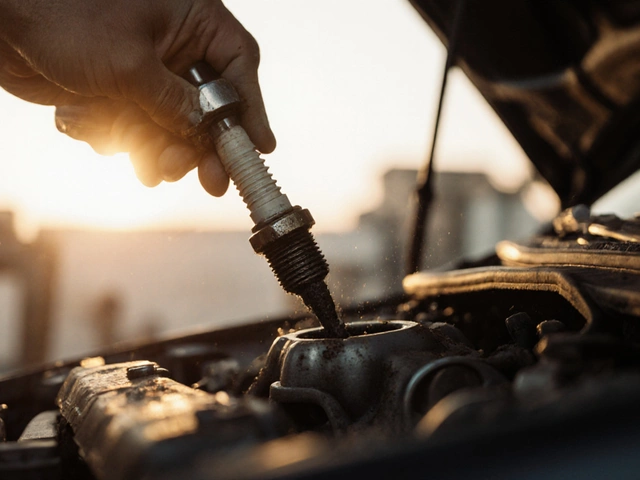Exhaust Cost: What You Need to Know Before You Pay
Thinking about fixing or upgrading your car's exhaust? Most people wonder how much it will cost and why the price can swing so much. The good news is you can plan ahead and avoid surprise bills if you know the main factors that drive the price.
What Affects the Price of an Exhaust?
First, the type of car matters. A small hatchback uses a simple exhaust system, while a larger SUV or a performance car needs bigger pipes, more parts, and sometimes special materials. That alone can double the price.
Second, the part you need changes the cost. A basic muffler replacement can be as low as £80‑£120, but a full‑system swap—including pipes, catalytic converter, and resonator—can climb to £500‑£1,200 or more. Materials also count: stainless steel lasts longer and resists rust, so it’s pricier than mild steel.
Third, labor rates vary by garage. A local independent shop might charge £50‑£70 per hour, while a franchised dealer can be £80‑£120 per hour. If the job is quick—like swapping a muffler—you might pay just a few hundred pounds total. Complex jobs that require removing the rear subframe or welding new sections will add more labour time.
Typical Price Ranges
Here’s a quick look at what most drivers see in the UK:
- Muffler only: £80‑£150 parts, £100‑£200 labour.
- Full exhaust system (stock replacement): £300‑£800 parts, £200‑£500 labour.
- Performance cat‑back or turbo‑back system: £600‑£1,500 parts, £250‑£600 labour.
- Catalytic converter replacement: £200‑£600 parts, £150‑£300 labour.
These numbers are averages. Your exact quote will depend on mileage, condition of existing parts, and whether you need extra fittings or a new hangers.
DIY vs. Professional Installation
If you’re handy and have basic tools, you can replace a simple muffler for under £100 in parts. The real saving comes from skipping labour. But remember safety: the exhaust gets super hot, and you need the car lifted safely. Wrong bolts or a poor seal can cause leaks, failed emissions tests, and noise problems.
For most people, letting a professional handle the job is worth the extra cost. They have the lifts, welders, and experience to get a tight fit that passes the MOT. Plus, many garages offer a warranty on parts and labour, giving you peace of mind.
How to Spot When You Need a New Exhaust
Pay attention to these signs:
- Loud rumbling or rattling noises, especially at low speeds.
- A strong smell of exhaust fumes inside the cabin.
- Reduced fuel efficiency—your car may be working harder.
- Failed MOT due to emissions or excessive noise.
- Visible rust or holes in the pipe, especially after winter.
If you notice any of these, get a quote before the problem gets worse. Ignoring a small leak can lead to bigger repairs later.
Tips to Keep Exhaust Costs Down
1️⃣ Shop around: Call three local garages and ask for a written estimate. Compare parts prices online, too.
2️⃣ Choose the right material: If you drive in a salty coastal area, stainless steel is worth the extra cost because it won’t rust as fast.
3️⃣ Combine jobs: If you need brake work or a suspension check, ask if the garage can bundle labour. That often saves a few dozen pounds.
4️⃣ Keep it clean: Regularly wash the underside of your car to remove road grime. Less corrosion means fewer premature replacements.
5️⃣ Consider a used part: A quality used muffler or pipe can be half the price of a new one, as long as it’s not badly corroded.
Bottom line: Exhaust cost isn’t a one‑size‑fit‑all number. By knowing your car’s needs, checking for warning signs early, and getting a few quotes, you can control the price and keep your ride running smooth and quiet.
 31 December 2024
31 December 2024
Understanding the Cost of a Full Exhaust System Replacement
When considering a full exhaust system replacement, it's important to understand the costs associated with the process. This article delves into the expenses you can expect, including the materials, labor, and potential market variances. It also offers tips on how to budget effectively and make informed decisions. The guide aims to provide car enthusiasts and everyday drivers with knowledge to tackle exhaust system replacements confidently.
Latest Posts
-

How to Use Windscreen Wipers Like a Pro: Tips for Clear Visibility
-

Why Alloy Wheels Are a Smart Choice for Vehicle Enthusiasts
-

Discovering the Right Car Battery: A Guide to Powering Your Ride
-

Engine Oil Balance: Too Much or Too Little - What's Best?
-

What Are the Symptoms of Bad Spark Plugs? Signs Your Engine Needs New Spark Plugs
Tags
- car maintenance
- engine oil
- spark plugs
- brake pads
- engine performance
- vehicle maintenance
- spark plug replacement
- windshield wipers
- fuel pump
- suspension parts
- clutch replacement
- oil change
- clutch kit
- car suspension
- car performance
- air filters
- car radiator
- exhaust systems
- fuel pump replacement
- engine misfire

0